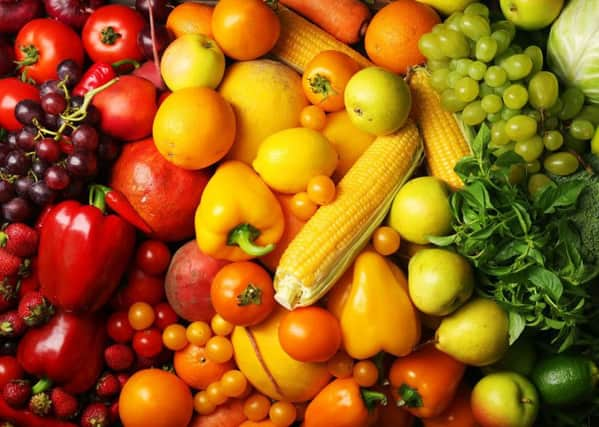Vegetables protect against stress


A study of more than 60,000 adults found those who consumed the most were much less likely to suffer stress.
It is believed garden goodies like leafy greens and tomatoes boost feel good chemicals in the brain.
Advertisement
Advertisement
People who ate between three and four daily servings of vegetables had a 12 percent lower risk of stress than those who had just one or fewer.
Meanwhile, five to seven daily helpings reduced the risk by 14 percent.
But it was women who benefited most, which is particularly significant after recent research showed they suffer significantly higher levels of work-related stress than men, putting them at risk of anxiety and depression.
Those who ate three to four daily servings were 18 percent less likely to become stressed.
Advertisement
Advertisement
And this rose to 23 per cent for those who got through five to seven, compared with women who managed one or less.
The researchers also looked at fruit consumption, but found this had no effect on stress levels.
The findings published in the British Medical Journal Open add to evidence that vegetables improve the mind, as well as the body.
Dark, leafy greens like spinach, for instance, are rich in folate, helping to increase the production of serotonin and dopamine which improve mood.
Advertisement
Advertisement
One study suggested higher consumption cuts the odds of depression by as much as 62 per cent.
Dr Melody Ding, of the University of Sydney, said her latest research underlines the importance of vegetables for a healthy brain.
She said: “This study shows that moderate daily fruit and vegetable consumption is associated with lower rates of psychological stress.
“It also reveals that moderate daily vegetable intake alone is linked to a lower incidence of psychological stress.
Advertisement
Advertisement
“Moderate fruit intake alone appears to confer no significant benefit on people’s
psychological stress.”
Her researchers followed their Australian participants, aged 45 and above, over a long period, at two time points between 2006 and 2010 and during 2010, using the Kessler Psychological Distress Scale, a 10 item questionnaire measuring general anxiety and depression.
They compared the results with self reported fruit and vegetable consumption, along with other lifestyle factors.
At the start of the study characteristics associated with higher stress included being female, younger, having lower education and income, being overweight, a current smoker and being physically inactive.
Advertisement
Advertisement
Eating more than seven servings of vegetables a day did not reduce stress risk further.
Dr Ding said her findings are consistent with numerous studies showing fruit and vegetables, together and separately, are linked with a lower risk of depression and higher levels of well being assessed by several measures of mental health.
Added first author Binh Nguyen, a PhD student: “We found fruit and vegetables were more protective for women than men, suggesting that women may benefit more from fruit and vegetables.”
The researchers said further studies should investigate the possibility of a ‘threshold’ between medium and higher levels of fruit and vegetable intake and psychological stress.
The research was based on data from Sydney’s Sax Institute’s 45 and Up Study, the largest ongoing study of healthy ageing in the Southern Hemisphere involving more than a quarter of a million people.